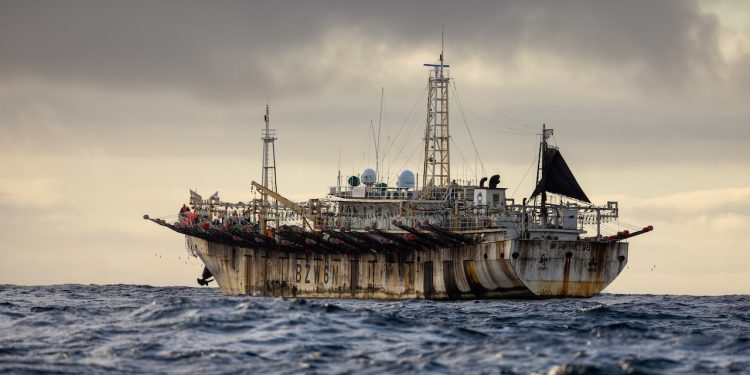The European Union has reached a provisional deal on a regulation prohibiting products made in violation of human and workers’ rights on the EU market – including seafood.
Around 27.6 million people worldwide endure forced labour conditions across numerous industries and on every continent.
This political agreement brings about substantial modifications to the initial proposal, clarifying the roles of both the European Commission and national competent authorities in the investigative and decision-making procedures.
European fishing industry body Europêche has welcomed this institutional agreement and wants to see a quick implementation of the system to effectively ban the trade in seafood derived from forced labour, hand in hand with EU policies against illegal fishing (IUU).
‘The EU’s battle against forced labour is evolving into a decisive new phase, characterised by a comprehensive array of legal measures to eradicate exploitative labor practices. Together with the IUU policy and the ILO Work in Fishing Convention, the new law will undoubtedly help sustain dignified employment and upholding fundamental rights within the fisheries sector worldwide,’ said Europêche director Daniel Voces.
‘The EU fishing sector stands ready to assist the Commission and Member States in their efforts to combat forced labour when and where necessary. The new law will offer European consumers even greater confidence in purchasing products that are ethically and sustainably sourced.’
Currently, legislators have reached a consensus that the Commission will create a database aimed at facilitating the enforcement of this regulation. This database will compile reliable and consistently updated data concerning forced labor risks, including inputs from international bodies like the International Labour Organization (ILO). Its primary objective is to assist the Commission and national competent authorities in evaluating potential breaches of this regulation.
The interim agreement also establishes explicit criteria to guide both the Commission and national competent authorities in evaluating the probability of violations of this regulation, including the scale and severity of the suspected forced labour. This approach is strongly supported by Europêche.
The agreement reached by the co-legislators also establishes criteria clarifying the leading authority in investigations. The Commission will lead investigations outside the EU territory, while within the territory of a member state, the competent authority of that member state will take the lead in investigations where risks are identified.









